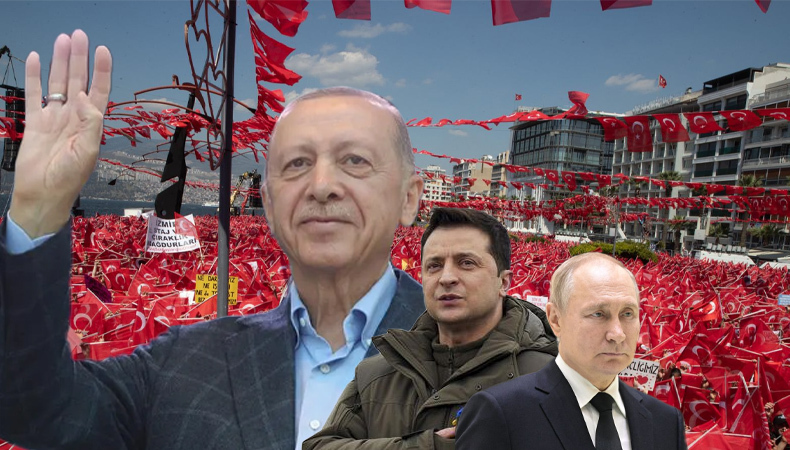Why is Erdogan’s win important for the west

The A-list mix of international leaders who raced to congratulate Recep Tayyip Erdogan on his election victory on Sunday night is evidence of Turkey’s growing strategic importance on the world stage, which has sharply grown against the backdrop of the Ukraine conflict.
Also Read – Turkey’s electoral board confirms first-round election results
Vladimir Putin, the president of Russia, broke the mold first. He didn’t even wait for the official election results before pointing to Mr. Erdogan’s “independent foreign policy” as the cause of his win because he was so eager to soothe the ego of his Turkish counterpart and fellow “strongman” leader.
We can reasonably infer that Mr. Erdogan’s failure to distance himself from the Kremlin during its full-scale invasion of Ukraine, even while Turkey’s partners in Nato applied sanctions and reduced their reliance on Russia for energy, is the Turkish approach that Russia is particularly fond of.
Since the commencement of the war in Ukraine, trade between Turkey and Russia has even greatly expanded. However, US President Joe Biden and his French colleague Emmanuel Macron were also congratulating Mr. Putin on Sunday.
Even while they disapprove of Mr. Erdogan’s cozying up to the Kremlin and his slicing of free speech and democratic principles at home during his first 20 years in office, they still see Turkey as a critical friend of the West, despite its challenges and unpredictability.
Turkey participates in all of NATO’s military activities and is a crucial member of the alliance. Erdogan may have tight links to Russia, but he also gives Ukraine military assistance.
He is credited for brokering an agreement whereby Russia lifted a ban on food shipments coming from Ukraine, allowing them to reach regions of the world that depend on them. He also provided his official consent to Finland joining NATO after much deliberation.
Formerly a fervent supporter of Turkey’s EU membership, Mr. Erdogan now talks about “making Turkey great again.” He has had to pursue a more autonomous foreign policy as a result. He has grown extremely transactional connections with all of his allies over the years.
The White House has been open about how impatient it is to attempt to convince Mr. Erdogan to support Sweden’s membership in NATO as well. Sweden would give the alliance crucial protection against Russia in the Baltic Sea.
The West expects that the terrible situation of Turkey’s economy, together with the possibility that Mr. Erdogan will have to focus on bringing in foreign investment and stabilizing finances, would prove to be a soft spot to press for Sweden’s Nato membership as a trade-off.
The only NATO nations still opposing Stockholm’s admission are Turkey and Hungary. While waiting for President Erdogan to provide guarantees, President Macron is concerned about immigration to the EU.
More over a million refugees and asylum seekers, mostly from Syria, traveled on smugglers’ boats across the Mediterranean to the EU during the 2015 migrant crisis.
After that, Brussels reached a settlement with Turkey. The Turkish president agreed to take all reasonable measures to stop undocumented migrants from leaving Turkish waters in order to enter the EU in exchange for a sizable sum of money and visa-free travel for Turks into the EU, which never fully materialized due to EU objections to Mr. Erdogan’s imprisonment of critics and political opponents.
However, Turkish voters found the growing number of Syrian refugees living in their country to be quite unfavorable. Every political party contesting in Turkey’s parliamentary elections made a commitment to act to address “the migrant issue” this month.
The EU is concerned that Turkey may drive refugees back into Syria, endangering their safety, and that it may once more give traffickers carte blanche to launch boats carrying migrants and asylum seekers across the Mediterranean.
Also Read – Turkey Celebrates Youth And Sports Day 2023 By Honoring Atatürk
Brussels is also on guard as EU member Cyprus is still on edge following Mr Erdogan’s call for a two-state solution (Greek and Turkish) to decades-long divisions there following a Turkish invasion nearly 50 years ago. EU member Greece is also on the defensive as it is embroiled in a dispute with Mr Erdogan over a number of islands in the Aegean Sea.




